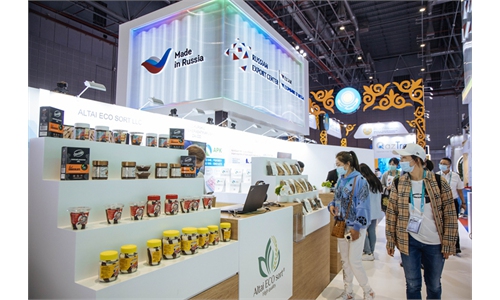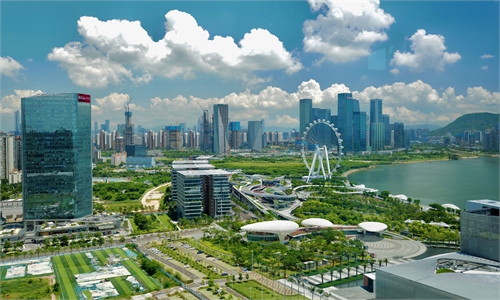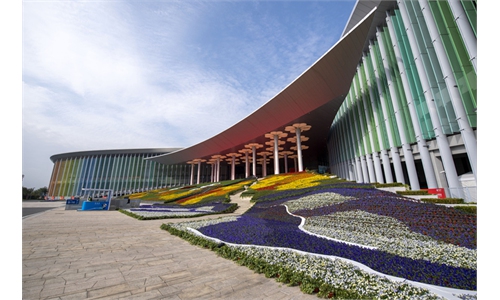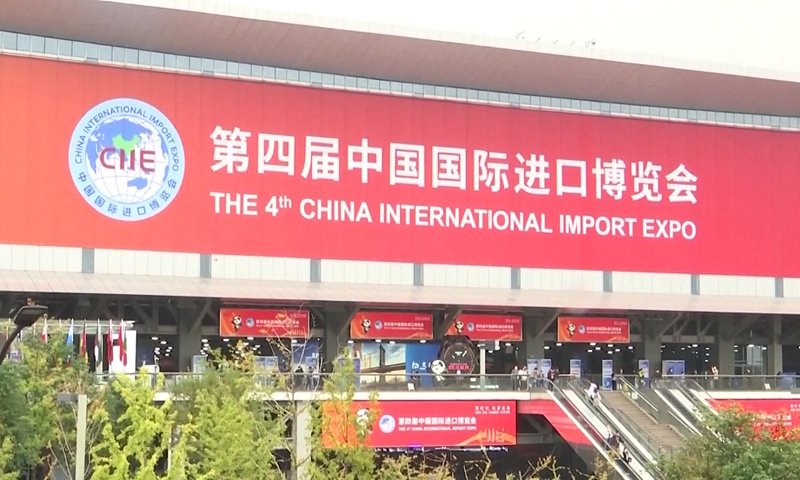
The 4th China International Import Expo (CIIE) in Shanghai Photo: CFP
Chinese analysts said the successful and fruitful event, held amid COVID flare-ups in China as well as rising global headwinds of unilateralism and protectionism, sent a strong signal to the world of China's commitment to opening-up and sharing the fruits of its growth with global partners.
The fourth CIIE concluded on Wednesday. While projected purchases were down 2.6 percent from the last expo, Sun Chenghai, deputy director-general of the CIIE Bureau, said the passion for the world's largest import expo remained unchanged.
Chinese analysts said because of the inconveniences posed by the COVID-19 pandemic, the expo was a hard-fought victory, and reflected the confidence of foreign companies in the vast Chinese market.
The expo was held at a time when the US government blatantly extorted and forced private semiconductor companies to submit confidential business data, a move that underlined rising uncertainty and trade protectionism in the world. At a sideline symposium of the expo, experts said that 28 percent of the 140 trade and investment measures issued by G20 developed countries are restrictive in nature.
Strengthening supply chain
Chinese analysts said as the pandemic wanes China is taking the initiative in safeguarding the smooth operation of the global supply chain and bolstering its position in it. And multinational companies are also flocking to China because of the stability, quality and even innovation China offers.
Li Yong, deputy chairman of the Expert Committee of the China Association of International Trade, a think tank affiliated with the Chinese Ministry of Commerce, said China will play an even bigger role in the global supply chain in the post-COVID-19 world, as its effective control of the epidemic, steadily increasing domestic demand, and complete industrial capacity have ensured its rising demand for global goods and services.
China's state-owned companies and local governments, even as some are facing US-led crackdowns and suppression, continue to place large orders with foreign companies.
Intended deals at the 4th CIIE on energy products including oil, natural gas and coal, increased by 22 percent from last year's event, while projected deals for liquefied natural gas doubled, according to the state assets watchdog.
For instance, China North Industries Group announced on November 6 that it has inked 19 deals worth $4.14 billion from suppliers from 13 countries including Iraq, Japan, France and the US. The purchased items include raw materials, precision technologies and smart technology equipment.
Zhu Yong, a senior commerce official in Northwest China's Xinjiang Uygur Autonomous Region, told the Global Times on Wednesday that the region realizes it needs to further optimize its foreign trade structuring as just relying on existing traditional trading partners in Central Asia won't be enough in the face of the austere challenges brought by the pandemic as well as the complicated external environment.
Buyers from Xinjiang inked over $6.62 million in purchases on November 6 alone, including alcohols from Georgia, and medical equipment from Sweden and the US. A further $1 million deal on health food was signed with a Japanese company.
These purchases showed China's unchanged determination to further open up to the world, Li said. And the stability and predictability that China offers have assured foreign companies to keep and consolidate their supply chain in China.
As many countries are wrestling over supply chain bottlenecks that have choked growth, more multinational companies are betting on China, whose full industrial chain, vast market, and consumer purchasing power are speeding up such a trend, which is China's best response to the US' decoupling strategy, analysts noted.
For example, US electric car maker Tesla is considering improving its localization rate to near 100 percent, a company senior executive said during the 2021 CIIE.
The comments came not long after CEO Elon Musk in an October investor meeting praised the gigafactory in Shanghai for its output, quality, low cost and stability.
Uniqlo China's public relations director Dong Chunfang told the Global Times on Wednesday that many of Uniqlo's partners (in China) used to be very small 30 years ago. But during the years they have also grown to be leading firms in the fabrics industry.
"Right now, about 70 percent of our supply chains are based in China," Dong said.
Webasto China President Jan Henning Mehlfeldt told the Global Times that since the company came to China 20 years, China has improved greatly in terms of innovation power. "Today, China is more the pacesetter and is giving innovation and technologies on the global scale. So it's really changed from a follower to a leader in the automotive industry. A lot of innovations like autonomous driving and auto electrification are pushed and supported mainly in China."
Webasto plans to further invest in China to further strengthen R&D and manufacturing capabilities in China, where the German auto parts company generated 10 billion yuan ($1.56 billion) in annual sales each year, according to Mehlfeldt.
China, the world's largest market with a population of 1.4 billion and a middle-income group that exceeds 400 million, is expected to see total imports topping $22 trillion in the coming decade.
Forging bonds
More than 280 Global 500 companies attended this year's CIIE, with about 40 of them making their debut. About 120 companies had attended the CIIE for the fourth time.
Bai Ming, deputy director of the Chinese Ministry of Commerce's International Market Research Institute, told the Global Times that in the post-epidemic era, the rarest thing in the world is the opportunity for growth.
"The CIIE is a fast and efficient matchmaking platform for multinationals to find the golden key to turn China's growing economy and China's continued opening-up into a surplus on their balance sheets," Bai said.
"We are taking advantage of the expo's spillover effect to present 20 cutting-edge products at this year's CIIE," Pius S. Hornstein, country lead of Sanofi China, told the Global Times on Wednesday.
Global grain trader ADM signed $2.9 billion in strategic partnership agreements with Chinese partners including COFCO, China Grain Reserve, Jiusan Group, and Shandong Bohi Industry.
In a press release sent to the Global Times, Leo Liu, the president of ADM China, said CIIE not only demonstrated China's determination to open up to the outside world at a high level and its role as a great nation, but also served an important window for companies to participate and share in China's steady economic growth.
Michael Fuebi, CEO of TUV Rheinland AG, one of the world's leading testing service providers, told the Global Times that his company has received over 600 inquiries, 20 percent higher than last year.
"There is no doubt that when the pandemic is over, I will personally return to China to meet clients, government and business representatives," he said.
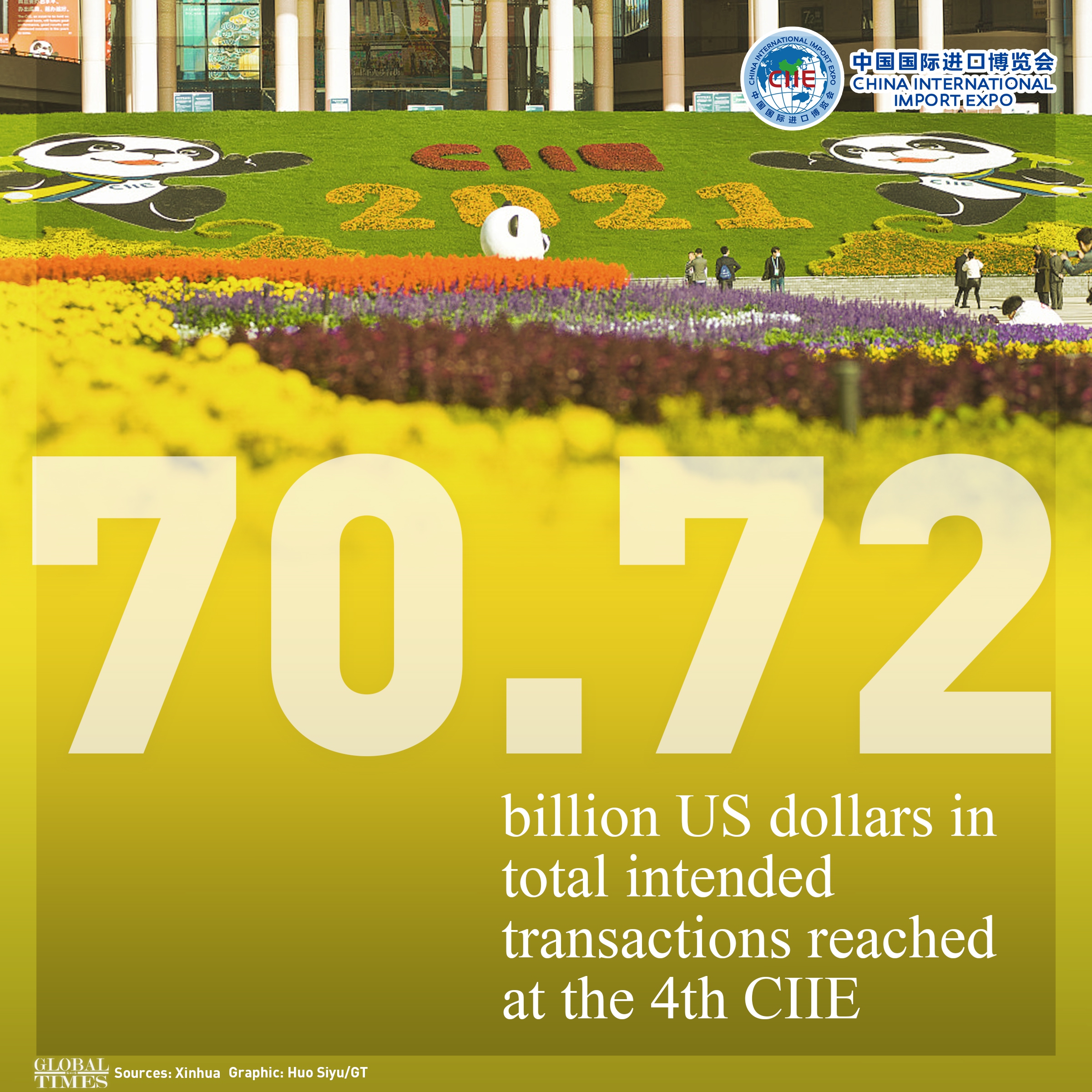
Highlights of the 4th CIIE.Graphic:Huo Siyu/Global Times
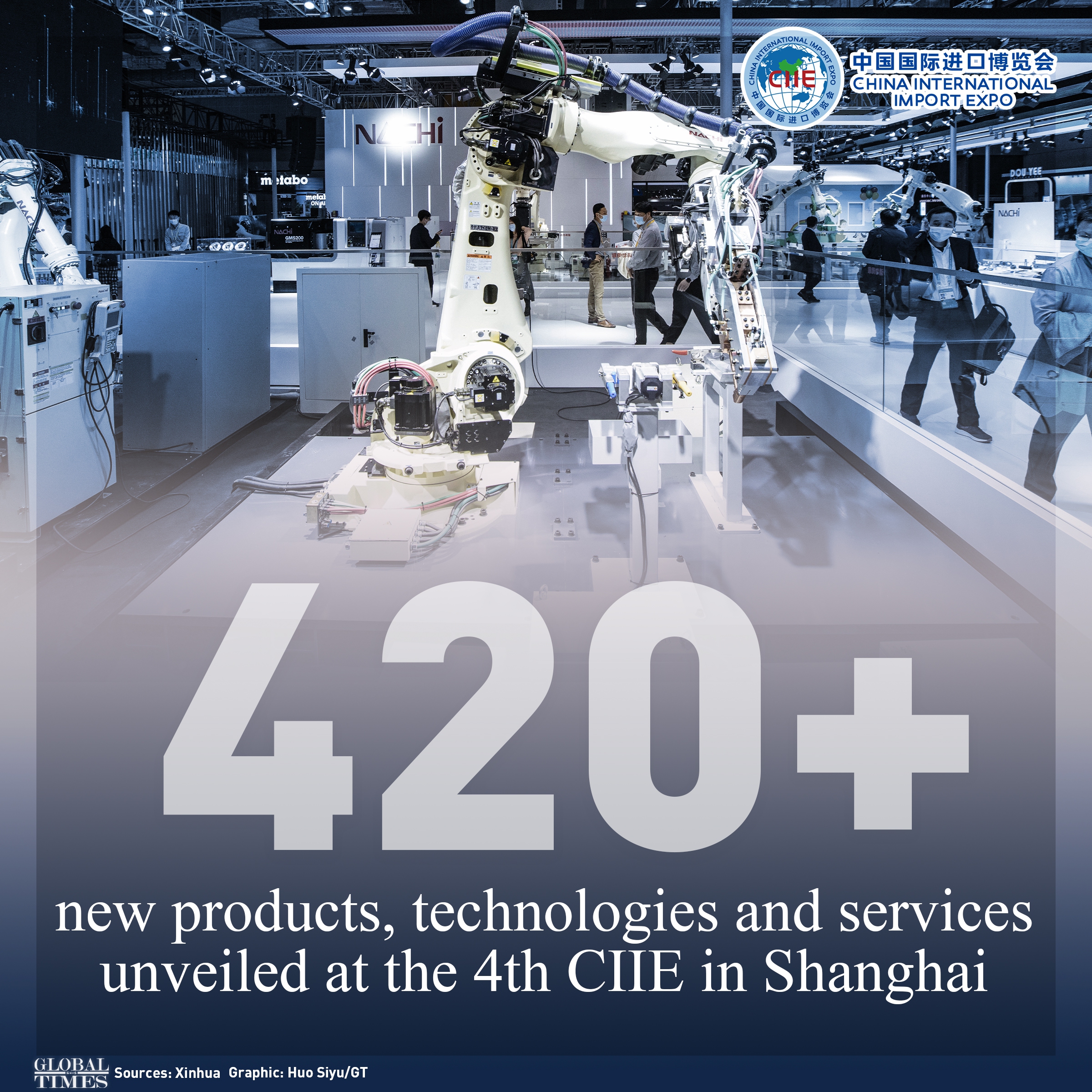
Highlights of the 4th CIIE.Graphic:Huo Siyu/Global Times
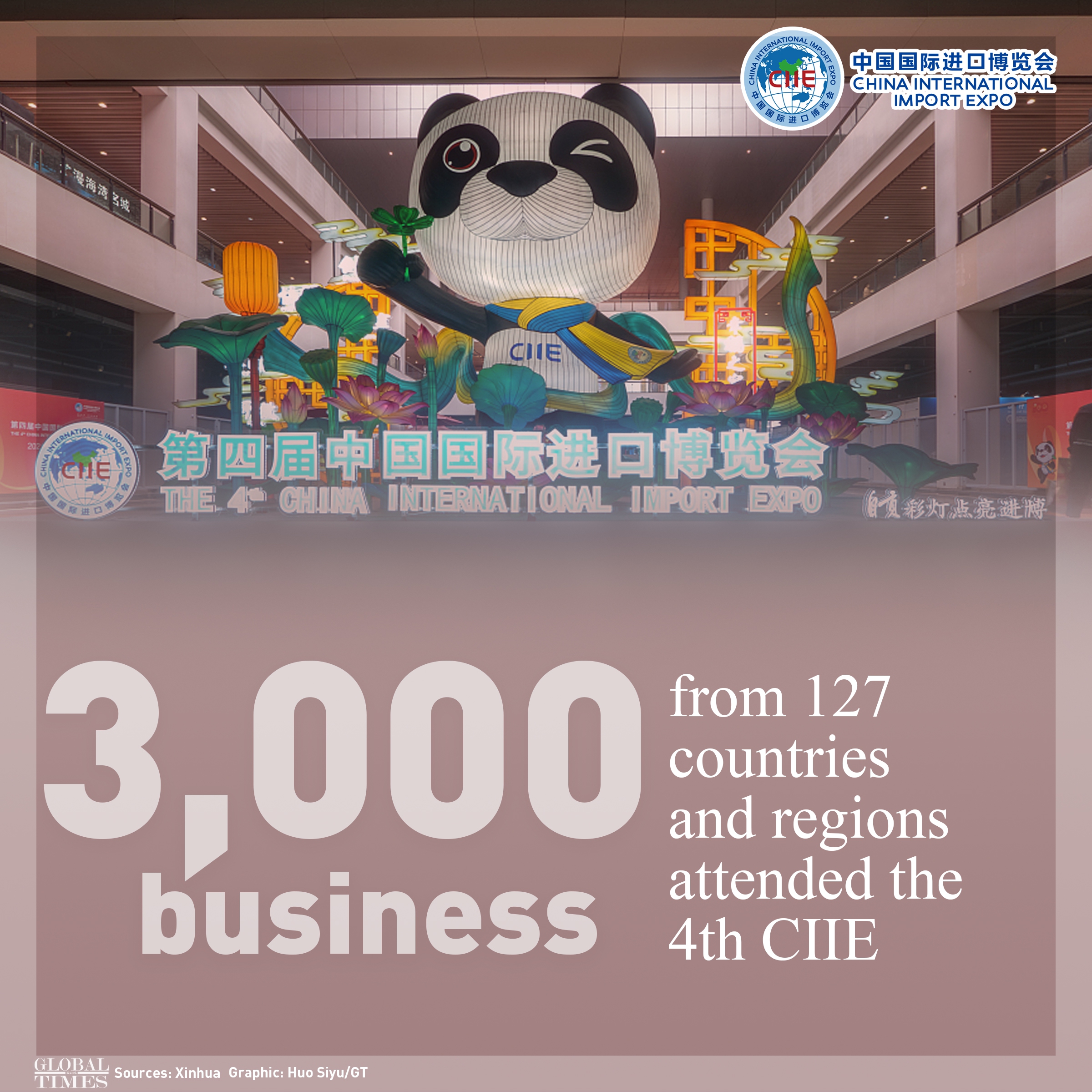
Highlights of the 4th CIIE. Graphic:Huo Siyu/Global Times
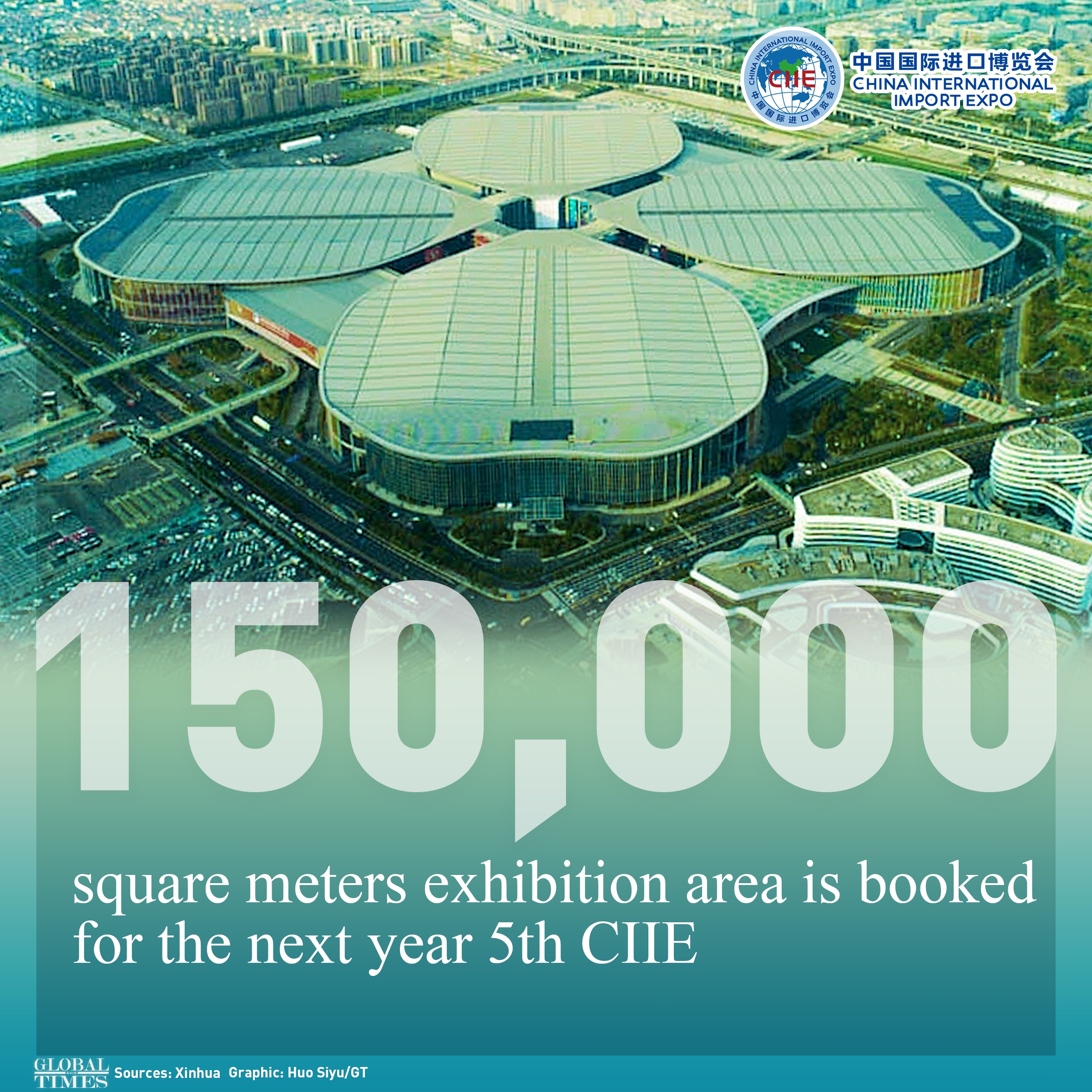
Highlights of the 4th CIIE.Graphic:Huo Siyu/Global Times
